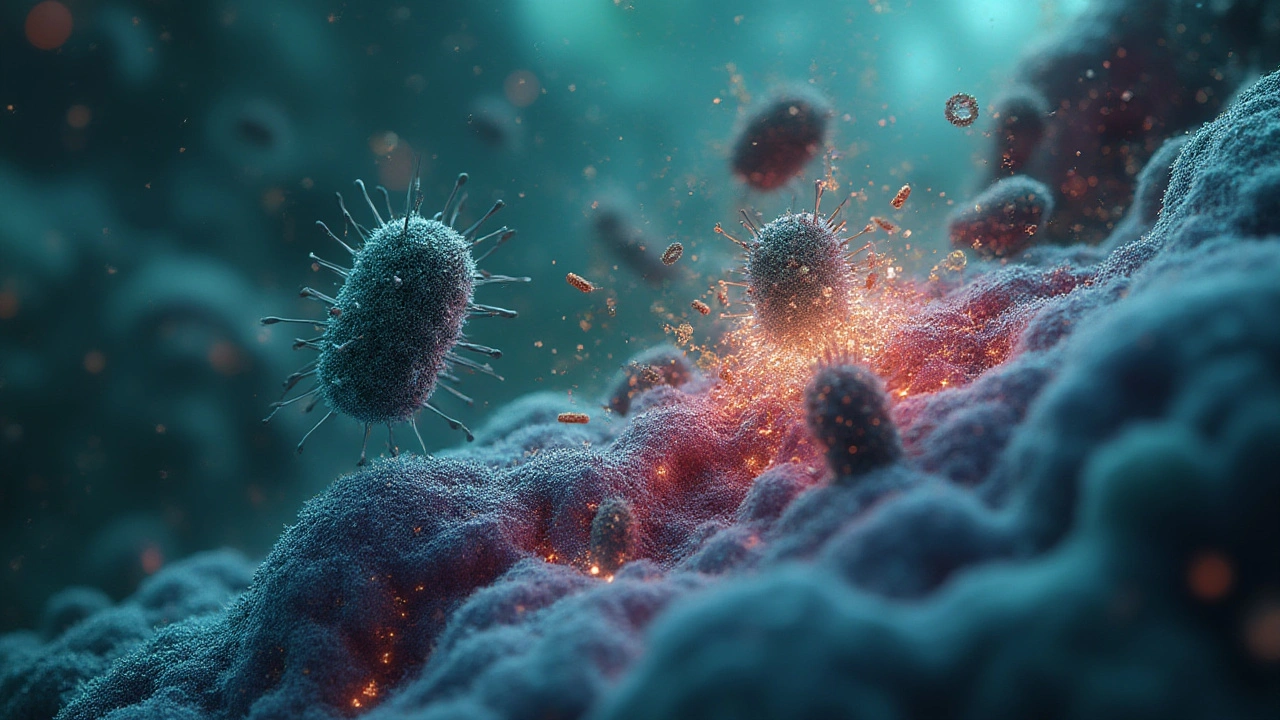Bacterial Toxins – What They Are and Why You Should Care
Ever wondered why a simple food poisoning can make you feel like the world is spinning? Most of that misery comes from bacterial toxins. These are poisonous molecules that bacteria release to damage our cells, hijack our immune system, or help them spread. Understanding how they work gives you a better chance to avoid getting sick and know what to do if it happens.
Exotoxins vs Endotoxins
First up, there are two main families: exotoxins and endotoxins. Exotoxins are secreted directly by the bacteria. They’re usually protein‑based, very potent, and can cause problems far away from the infection site. Think of botulinum toxin that leads to muscle paralysis or diphtheria toxin that attacks heart tissue.
Endotoxins, on the other hand, are part of the outer membrane of gram‑negative bacteria. They’re released when the bacterial cell dies and the wall breaks apart. You’ll hear about them in severe sepsis cases – they trigger a massive inflammatory response that can crash your blood pressure.
Staying Safe from Bacterial Toxins
The good news? Most toxin‑related illnesses are preventable. Wash your hands thoroughly, especially before cooking or eating. Keep raw meat separate from ready‑to‑eat foods and cook everything to the right temperature – most toxins are destroyed by proper heat.
If you travel abroad, be picky about street food. Stick to hot dishes that have been cooked in front of you and avoid unpasteurized dairy. When you’re at risk for a toxin‑producing infection (like C. difficile after antibiotics), talk to your doctor about probiotics or other protective measures.
Should you get sick, early medical help matters. Doctors can give antitoxins for specific threats such as tetanus or diphtheria, and supportive care for sepsis caused by endotoxins. Knowing the symptoms – sudden fever, severe diarrhea, muscle weakness, or a rash that looks like a sunburn – can speed up treatment.
In short, bacterial toxins are tiny but mighty culprits behind many common illnesses. By keeping clean, cooking right, and staying alert to warning signs, you cut down the risk dramatically. Next time you hear about a toxin outbreak, remember these simple steps and you’ll be ready to protect yourself and your family.
Unlock the secrets of virulence factors—learn how toxins, capsules, and secretion systems empower bacteria to invade and damage human tissues. Discover why bacterial infections get so tricky.
Latest Posts
Contrave (Naltrexone/Bupropion) vs. Other Prescription Weight‑Loss Options: Full Comparison
Oct 9 2025

 Medications
Medications